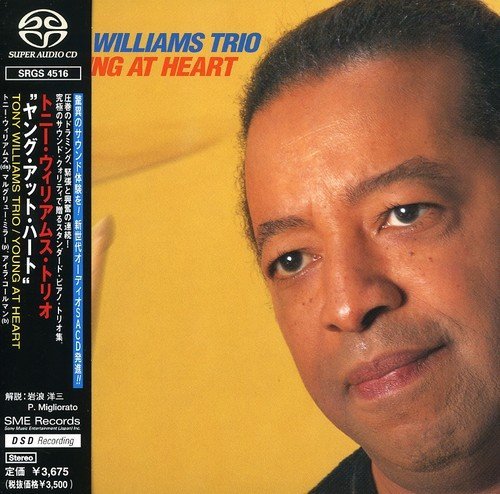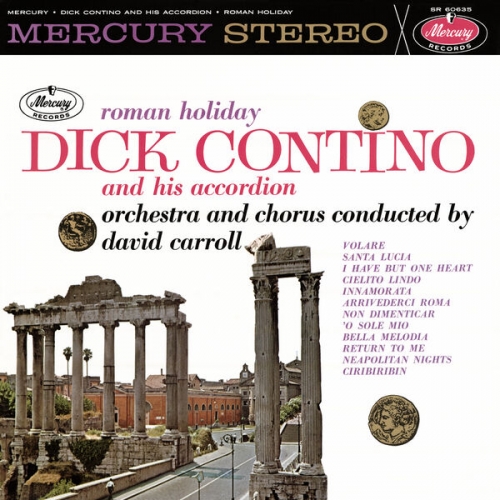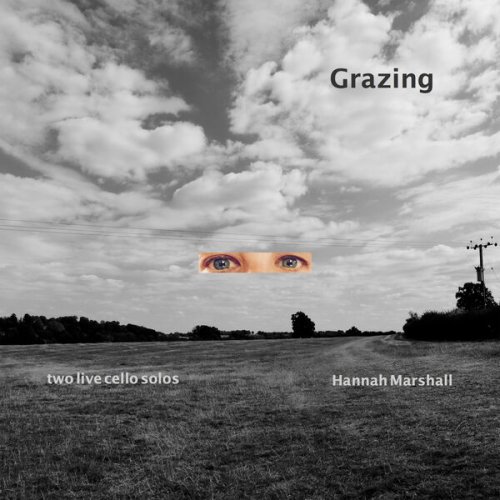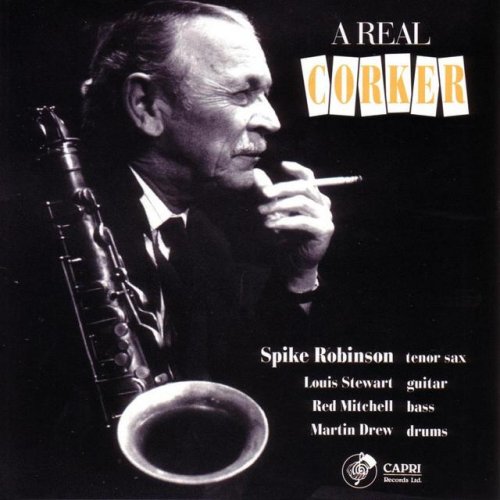Tony Williams Trio - Young At Heart (1999) [SACD]

Artist: Tony Williams Trio, Tony Williams
Title: Young At Heart
Year Of Release: 1999
Label: Sony Music
Genre: Jazz
Quality: DST64 2.0 image (iso)
Total Time: 01:09:12
Total Size: 1.91 GB
WebSite: Album Preview
Tracklist:Title: Young At Heart
Year Of Release: 1999
Label: Sony Music
Genre: Jazz
Quality: DST64 2.0 image (iso)
Total Time: 01:09:12
Total Size: 1.91 GB
WebSite: Album Preview
01. Promethean [4:07]
02. Young At Heart [5:49]
03. On Green Dolphin Street [8:53]
04. Farewell To Dogma [5:52]
05. How My Heart Sings [6:15]
06. Fool On The Hill [6:21]
07. Neptune : Fear Not [6:11]
08. You And The Night And The Music [6:45]
09. Body And Soul [6:39]
10. This Here [7:35]
11. Summer Me, Winter Me [4:50]
This would be the drummer's last recording, cut six months before he died. It shows Williams in a more conciliatory mood, sublimating his huge chops and bombastic style for subtler shadings and support for pianist Mulgrew Miller and bassist Ira Coleman, while lessening none of his indefatigable swing. This was also the last band Williams toured with, indicating he was committed to and comfortable with the acoustic piano-bass-drums format. It's a setting he had never really fully exploited over his years of leadership, no doubt inspired by the Herbie Hancock-Ron Carter partnership within the Miles Davis quintet of the mid-'60s. On the six standards present, Miller shines like a million facet diamond, his ultra-bright ideas swimming happily in this cauldron of crackling rhythms. The pianist peculiarly reharmonizes -- perhaps even shifts keys -- on six bars of the first line of the ballad "Body and Soul" and hits the kicker, his composition "Promethean," hard and strong, ripping off boppish melodic and harmonic phrases as if child's play. Williams trades fours on "Promethean" and the bass-led feature for Coleman during "You and the Night and the Music"; he also busts out with his typical triplet and quadruplet fury for the solidly swinging, slightly reharmonized "On Green Dolphin Street." The trio also recapitulates the previously larger-ensemble Williams original "Neptune" in a more pensive, poised, Aquarian mode than the caravan processional of the earlier recording. Miller's extraordinary modal chord extrapolations at the end are stunningly beautiful. Although this might not be viewed by fans as typical of Tony Williams, it is a logical conclusion to a brilliant career in jazz, and holds up high the lofty improvisational values he kept close to his vest, but near to our hearts. Recommended. -- Michael G. Nastos
![Larry Coryell - Major Jazz Minor Blues (1998) [CDRip] Larry Coryell - Major Jazz Minor Blues (1998) [CDRip]](https://www.dibpic.com/uploads/posts/2026-02/1771860317_5.jpg)


![Æthenor - Hazel (2016) [Hi-Res] Æthenor - Hazel (2016) [Hi-Res]](https://img.israbox.com/img/2026-02/21/u8vm4dsf9wrvmhpl4zso2e791.jpg)
![Magda Mayas' Filamental - Murmur (2026) [Hi-Res] Magda Mayas' Filamental - Murmur (2026) [Hi-Res]](https://www.dibpic.com/uploads/posts/2026-02/1771663724_i3cjtptz4ae2l_600.jpg)



